In Turkish election, democracy itself is at stake
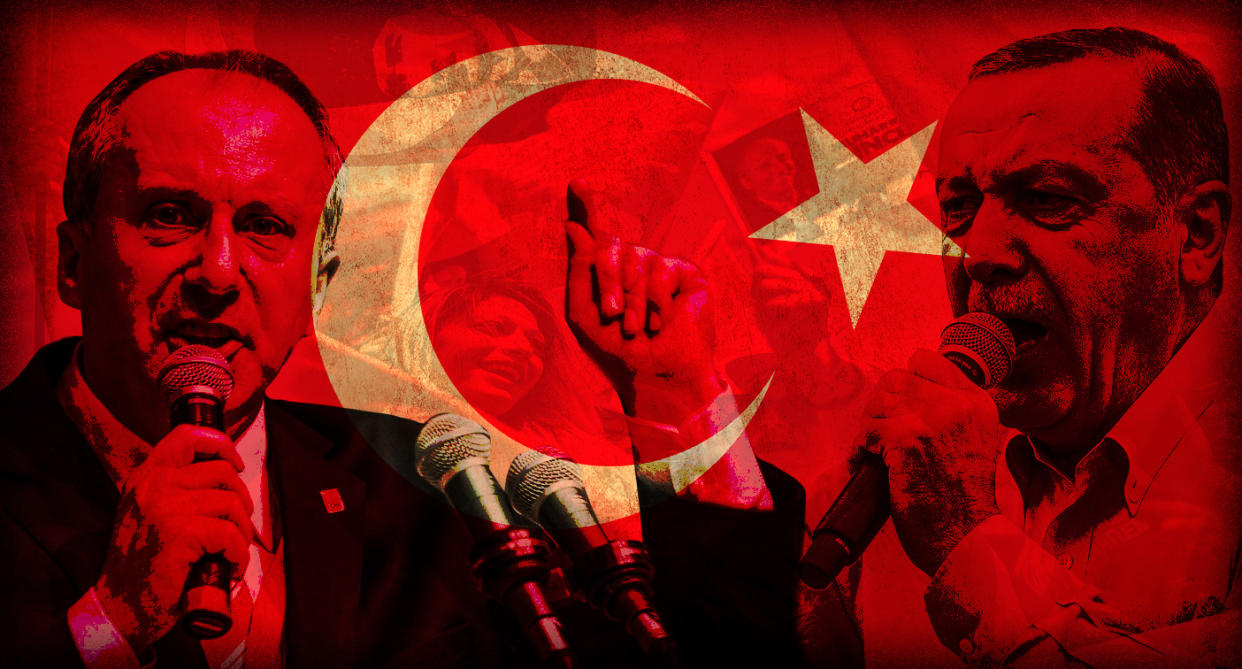
ISTANBUL — It’s a week before an election, and the firebrand candidate takes the podium to speak to a small, private crowd of loyal supporters. He calls on them to keep an eye open for “the others” and to “do some special work on them” to help secure a win. “You know who is who,” he says suggestively.
This candidate is adored by supporters and loathed by dissenters. He bristles at criticism, rails constantly against “fake news” and the “deep state,” and commands a disgruntled army of Twitter trolls. But this dog-whistling speech wasn’t given in a basketball arena in the Midwest, and it wasn’t given by President Trump — it was made by Turkish President Recep Tayyip Erdoğan.
Turkey is holding snap elections on June 24, and in the run-up, Erdoğan’s stump speeches have grown more and more Trumpian. Like the American president, Erdoğan fashions himself as populist representative of the common man facing down an array of corrupt elites. He prefers alternative facts, and portrays himself as a political outsider who will preserve Turkey in the face of opponents he says have been in power too long.
The stakes are high for Erdoğan (pronounced “air-dough-one”), as a victory would solidify one-man rule in Turkey — a NATO ally of 80 million people. But he faces challenges from a rising opposition and a stumbling economy.

Voters will elect a president and a parliament at the same time, as Turkey shifts from a parliamentary to a presidential system. Riding a wave of nationalist fervor, Erdoğan gambled on a referendum last year to change the constitution, giving the presidency sweeping powers that once belonged to the parliament. It passed, but the results were wire-close and controversial, and the opposition vows to undo the changes if comes into power.
Turkey’s largest opposition party, the Republican People’s Party (CHP), has a hopeful new candidate in Muharrem Ince, who has energized crowds with his charisma and fiery rhetoric. In the face of Erdoğan’s growing authoritarianism, the opposition has managed to finally overcome interparty squabbles and present a united front. But the odds are against them — the commanding Justice and Development Party (AKP) controls the majority of the media and public campaign funds, making it impossible for opposition candidates to get equal airtime.
“It’s very important for President Erdoğan; his political future is at stake here,” Gönül Tol, director of the Washington-based Middle East Institute’s Center for Turkish Studies, tells Yahoo News. “And for the opposition, this is the last exit in terms of saving what’s left of Turkish democracy.”
A week before the election, campaign flags are ubiquitous on Istanbul’s streets. Though Erdoğan’s face is everywhere, current polls predict a strong challenge from the opposition, and the race will go to a runoff if Erdoğan fails to secure 50 percent of the vote in the first round.
The outcome will determine the fate of the nation for years to come.
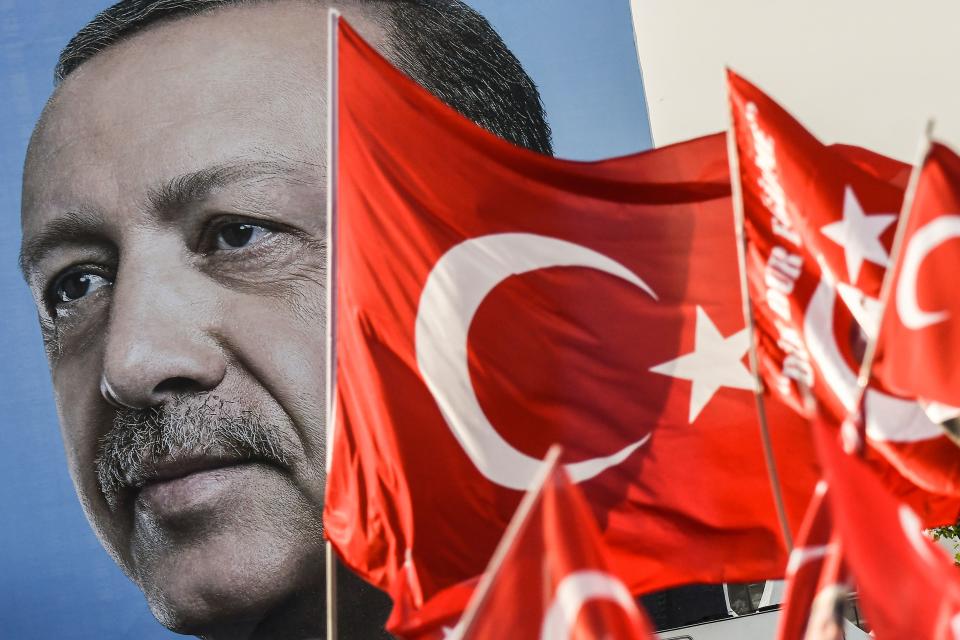
While Trump has only been in office for a little over a year, Erdoğan has led Turkey for over fifteen years and has managed to accrue unprecedented power while cracking down on the opposition. Since an attempted coup in 2016, tens of thousands of Turks have been jailed. Journalists, MPs, academics, civil servants — and even judges and prosecutors — have been swept up in the purge, which Turkey contends is necessary to fight terrorism. A prominent opposition candidate is even running his campaign from prison.
The elections are critical not just for Turkey but also for the U.S. Close to Russia and the Middle East, the nation has long been a key American ally and acted as a buffer from Russian influence in the region.
That buffer is already weakening; Erdoğan recently bought missiles from Russia in a deal that prompted the U.S. to threaten sanctions. “Erdoğan and the people around him, his advisors, have long advocated that Turkey should abandon its relationship with the West and turn towards Russia, Iran and China,” Kemal Kirişçi of the Washington-based Brookings Institute tells Yahoo News.
But over the past year or so, a number of conflicts have pushed the ties between the two countries close to the breaking point while fueling a tide of anti-West nationalism.
One irritant is the refusal by the U.S. to extradite Fetüllah Gülen, a Turkish preacher living in exile in rural Pennsylvania whose followers Turkey blames for the 2016 coup attempt. In what American officials consider political retaliation, Turkey imprisoned several U.S. citizens. Then, when a New York City court sentenced a Turkish banker for using state-owned HalkBank to evade sanctions on Iran, Ankara called the trial a sham based on fabricated evidence.
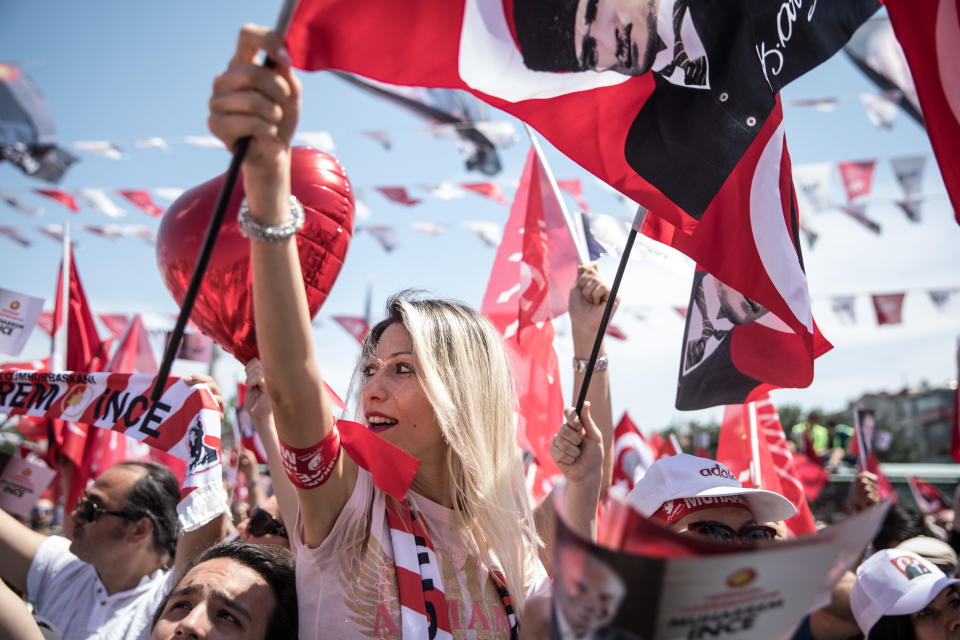
The biggest point of conflict, however, remains the Kurds. While American troops have backed the Syrian Kurdish YPG in fighting ISIS in Syria, Turkey points to YPG’s long historical ties to the blacklisted Kurdistan Workers Party (PKK), which has fought a bloody insurgency in Turkey for decades. With Turkey’s latest incursion sweeping through YPG’s territory along its border, the fear that Turkish troops could end up directly confronting American forces in Syria continues to threaten the relationship. Those tensions are simmering for now, but U.S. legislation calling for sanctions on Turkey has made it to the Senate.
Turkey remains important to the U.S. “The U.S. needs Turkey’s cooperation in counterterrorism, just like Turkey needs the U.S.,” says the Brookings Institute’s Kirişçi. “If Turkey was chucked out of NATO or left NATO … where would countries like Ukraine, Moldova, Georgia go? I think Putin would have them for dinner.”
An opposition win could, at the very least, mean a return to the long-standing status quo between the U.S. and Turkey. Ince has promised to peacefully resolve the “Kurdish problem,” which analysts see as a positive sign. “If that happens, Turkey can pursue a pragmatic approach with the Syrian-Kurdish militias and that would resolve a major problem in Turkish-U.S. ties,” says Tol.
But just because the CHP are anti-Erdoğan does not mean they are pro-Western. “Some of the steps the Erdoğan government has taken that have angered the Americans might have been taken by a CHP leader or any Turkish government leader,” she says.
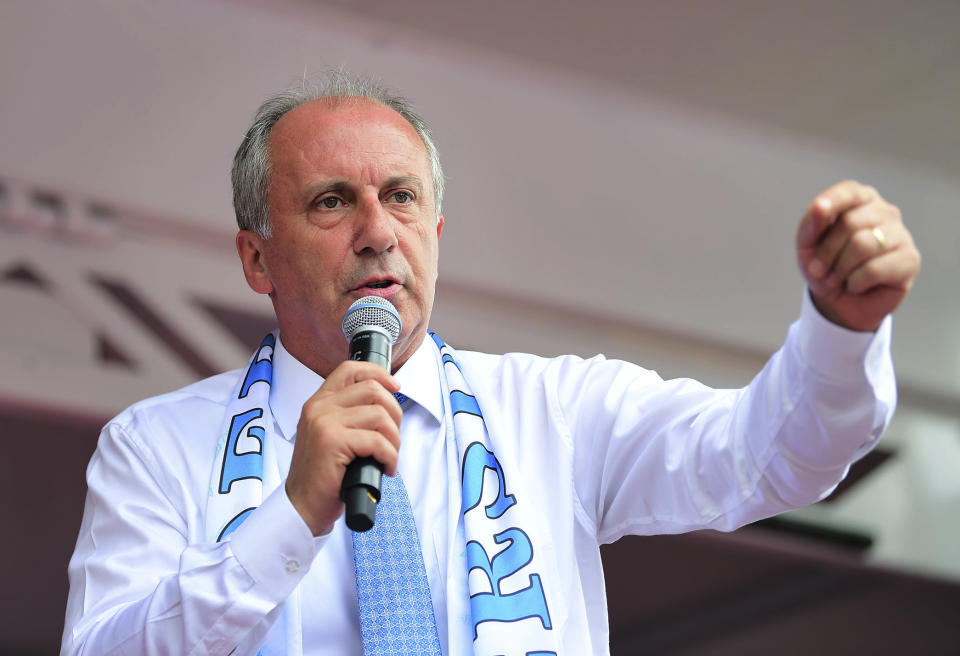
Erdoğan has repeatedly blasted his American and European allies while moving closer to Russia and Iran. Most recently, he threatened American troops supporting the YPG with an “Ottoman slap” if they stood in the way of the Turkish military.
While he may talk tough about the West, trade with America and Europe represents a huge and growing opportunity that Erdoğan can’t easily pass up given the faltering Turkish economy.
Everything looked on track for Erdoğan when he called the snap elections in April — violating a promise he had made just weeks earlier — but what he didn’t count on was the implosion of Turkey’s currency.
Erdoğan has long refused to raise interest rates and kept the value of the Turkish lira artificially high – until it crashed. Stock markets panicked when Erdoğan hinted he’d take more economic controls if he won another term, and the lira hit a record low against the dollar. The crash not only badly hurt Turkey’s economy but also revealed growing frustrations in Erdoğan’s support base.
Trump’s attacks on “the deep state” — a term that has its origins in Turkey — echo the rhetoric of Erdogan’s supporters. While in the U.S., the deep state is largely an invented bogeyman, in Turkey it means something real. “For a long time, through the ’80s and ’90s, Turkey did really have something that could be considered the deep state,” Nicholas Danforth, an analyst at the Washington-based Bipartisan Policy Center, tells Yahoo News. “It was a nexus of military [and] bureaucratic forces as well as organized crime that in ways that weren’t completely understood at the time, [and] served to thwart the democratic will of the people to benefit the state,” he explains.
Since 1960, Turkey has seen five attempted or successful coups-d’état, in which the military — seen as the guardian of the secularist principles that founded the nation — stepped in when elites behind the scenes saw the country as under threat from growing Islamic influence.

Like Trump, Erdoğan blames the deep state for many of his problems and has used it to justify curbing the military’s power. “The AKP has been very eager to present itself as the champion of a long downtrodden, pious working class that was victimized by the CHP in alliance with the military and the secular-bureaucratic elite,” says Danforth.
Says Tol: “For a long time, the military and judiciary were seen as the guardian of the secular republic – now it’s become the guardian of Erdoğan’s rule.”
The opposition must overcome not just Erdogan’s massive popularity, but also fears that Turkey’s security apparatus could rig the election through force or tampering.
The pro-Kurdish People’s Democratic Party has decried plans to relocate hundreds of voting stations in the Kurdish-majority southeast — supposedly for security reasons — as a means of suppressing the crucial Kurdish vote.
The latest polls predict the race will come down to the wire, but even with the economy struggling, the opposition still faces an uphill battle to unseat Erdoğan and his AKP at both the presidential and parliamentary levels.
Says Tol, “Many people think this is the last opportunity — that after these elections, Erdoğan will consolidate his power to an extent that we won’t be able to talk about Turkey as a democratic country anymore.”
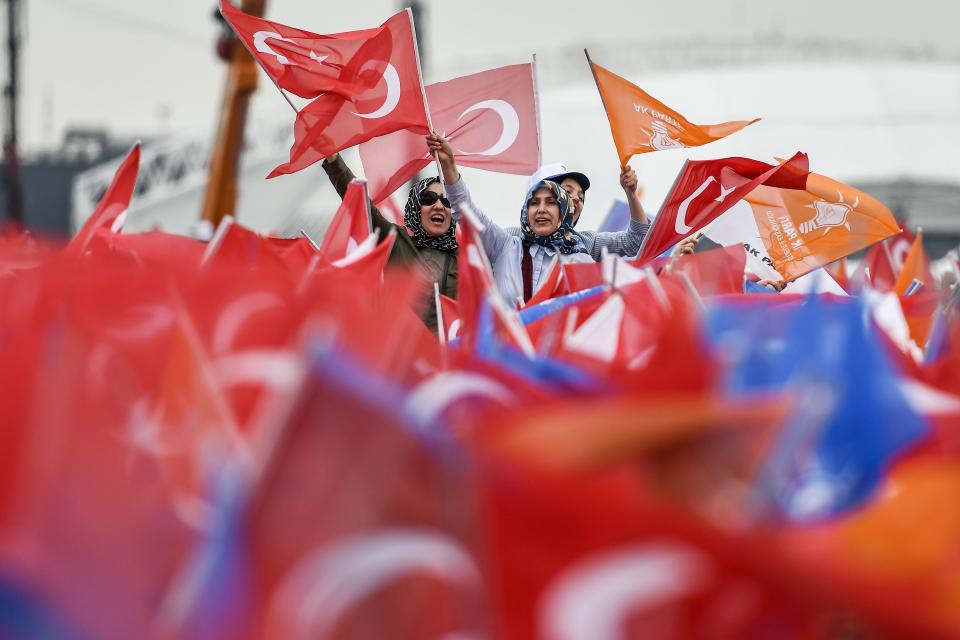
Shawn Carrié is a journalist covering conflict, migration and human rights in Iraq, Syria and Turkey.
Pesha Magid is based in Turkey and Iraq and covers conflict, gender and the intersections of politics and culture.
_____
Read more from Yahoo News:



